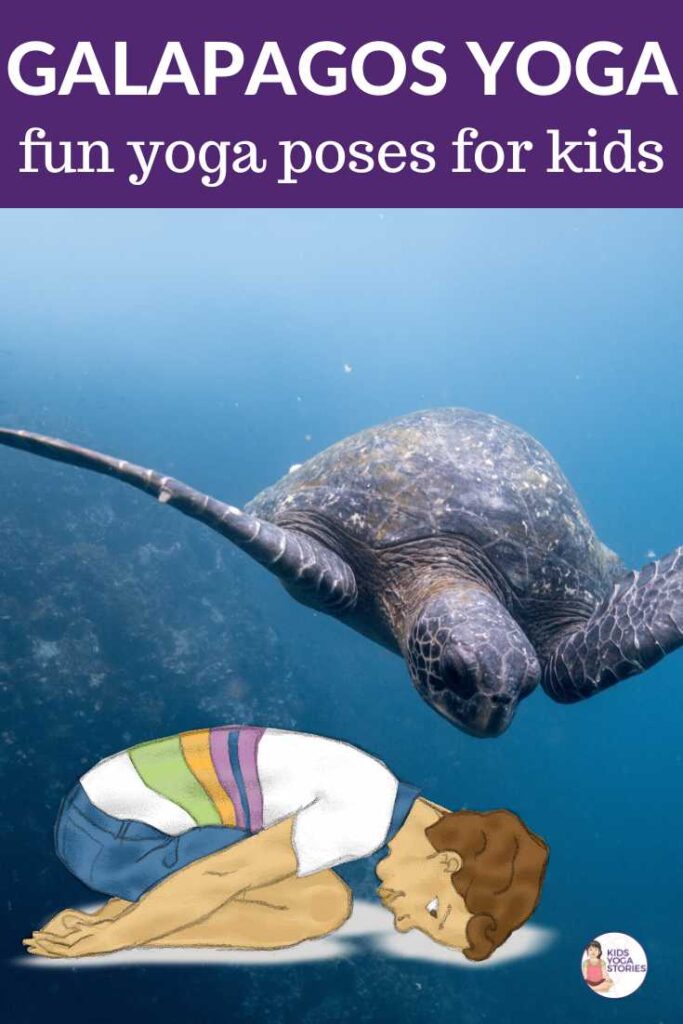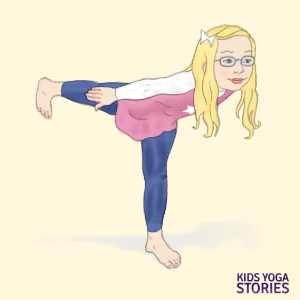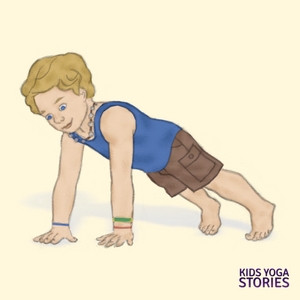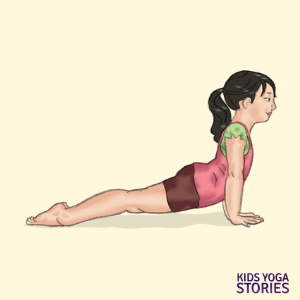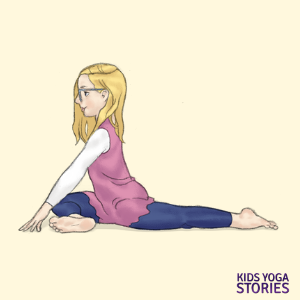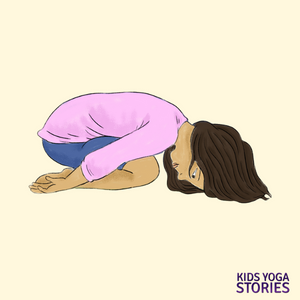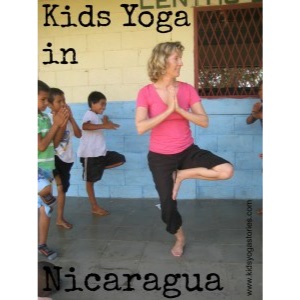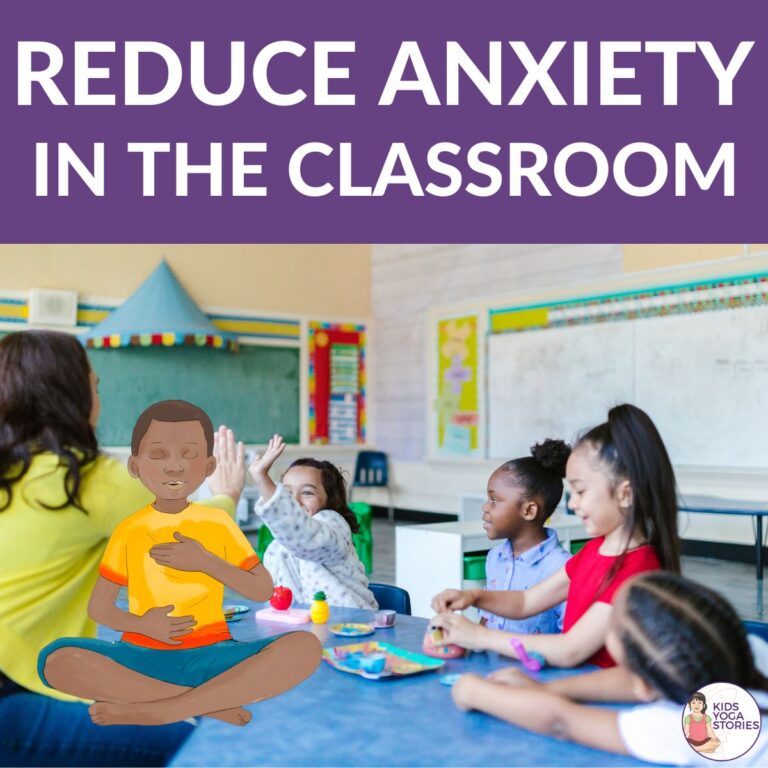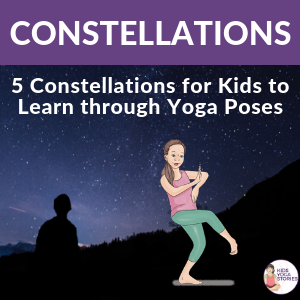A Pretend Galapagos Trip through Yoga Poses for Kids
Have you taken a Galapagos trip?
As a kindergarten teacher, Desiree takes her students on pretend learning journeys to visit the seven continents. She asked if we had any yoga poses related to South America. My first thought was “Galapagos! Why haven’t we written about a pretend Galapagos yoga journey yet?” This is a place on my bucket list to visit.
As I’ve never actually been to Galapagos, I had to rely on books and internet research to learn about this mysterious place.
Here are some things my daughter and I learned from books we took out of the library:
- The Galapagos Islands are a group of 19 islands in the Pacific Ocean, about 600 miles west of Ecuador.
- The islands were first discovered by Fray Tomás de Berlanga, the first bishop of Panamae, in 1535.
- Charles Darwin studied finches there in 1831 and developed the theory of evolution to explain why the finches had different beak shapes reflective of their various diets.
- The first tour boat arrived in 1969.
- “Galapagos” means “giant tortoises” in Spanish.
- Animals that live on the islands include marine iguanas, tortoises, sea turtles, penguins, pelicans, seabirds, sea lions, albatross, dolphins, cormorants, boobies, seals, doves, hawks, crabs, giant rays, sharks, frigates, flamingos, and finches.
This post contains Amazon affiliate links.
Our four favorite books about the Galapagos were:
- We’re Sailing to Galapagos
: A Week in the Pacific, by Laurie Krebs and Grazia Restelli
- Island: A Story of the Galápagos
, by Jason Chin
- Take Your Time: A Tale of Harriet, the Galapagos Tortoise
, by Eva Furrow, Donna Jo Napoli, and Laurel Molk
- “Galapagos” Means “Tortoises”
, by Ruth Heller
5 Galapagos Yoga Poses for Kids
We know that learning through movement helps children retain the information, so here are five yoga poses inspired by the interesting animals that inhabit the Galapagos islands. The yoga poses are listed in a particular sequence to invite flow from one pose to the next.
1. Warrior 3 Pose: pretend to be a seagull
How to practice Warrior 3 Pose: Stand on one leg. Extend the other leg behind you, flexing your foot. Bend your torso forward and take your arms back alongside your body. Pretend you are flying around the islands like a seagull. Switch sides and repeat the steps.
2. Plank Pose: Pretend to be a marine iguana
How to practice Plank Pose: From a standing forward bend, step your feet back to your bent toes in a plank position. Keep your arms straight and your back long and flat. Pretend to be a marine iguana sauntering around the rocks.
3. Upward facing Dog Pose: pretend to be a sea lion
How to practice Upward Facing Dog Pose: Lie on your belly. Place the palms of your hands next to your shoulders and look up. Then straighten your arms and expand your chest. Imagine being a sea lion stretching on a rock.
4. Pigeon Pose: pretend to be a cormorant
How to practice Pigeon Pose: From a standing position, bend down and place your palms flat on the ground. Step your feet back to create an upside-down V shape with your buttocks high in the air. Bring your right knee to rest behind your right hand, angling your right foot slightly inward, and perch like a cormorant looking out over the rough ocean waves. Repeat on the other side.
5. Child’s Pose: pretend to be a tortoise
How to practice Child’s Pose: Sit on your heels, slowly bring your forehead down to rest on the floor in front of your knees, rest your arms down alongside your body, and take a few deep breaths. Pretend to be a tortoise resting in the short grasses.
I really hope to take my family to Galapagos one day. Until then, we’ll just have to bring Galapagos to us through books and yoga poses.
What place in the world would you really like to visit? Ask your children and tell us in the comments below!
GET YOUR 3 POSTERS HERE
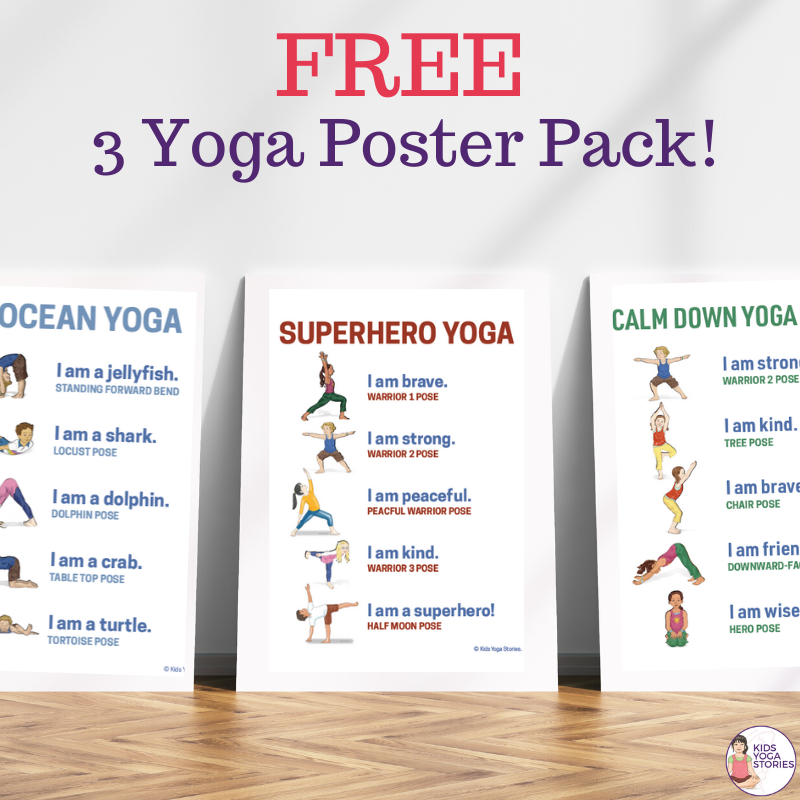
MAY WE SUGGEST…
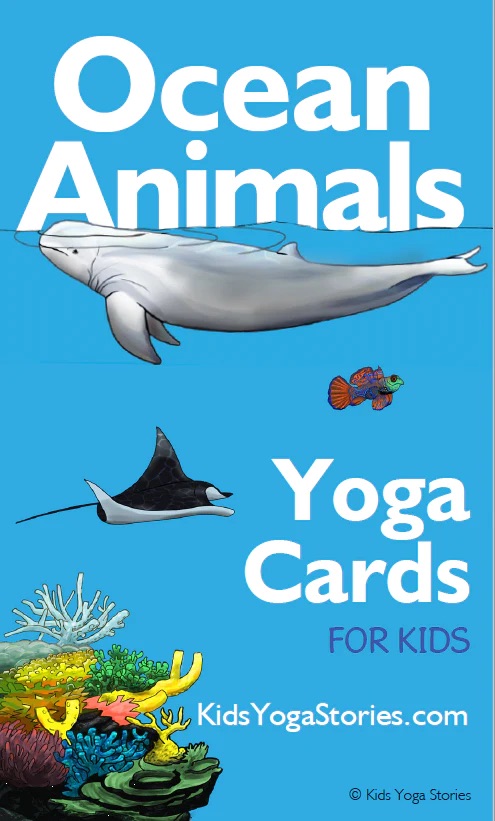

PIN IT FOR LATER
